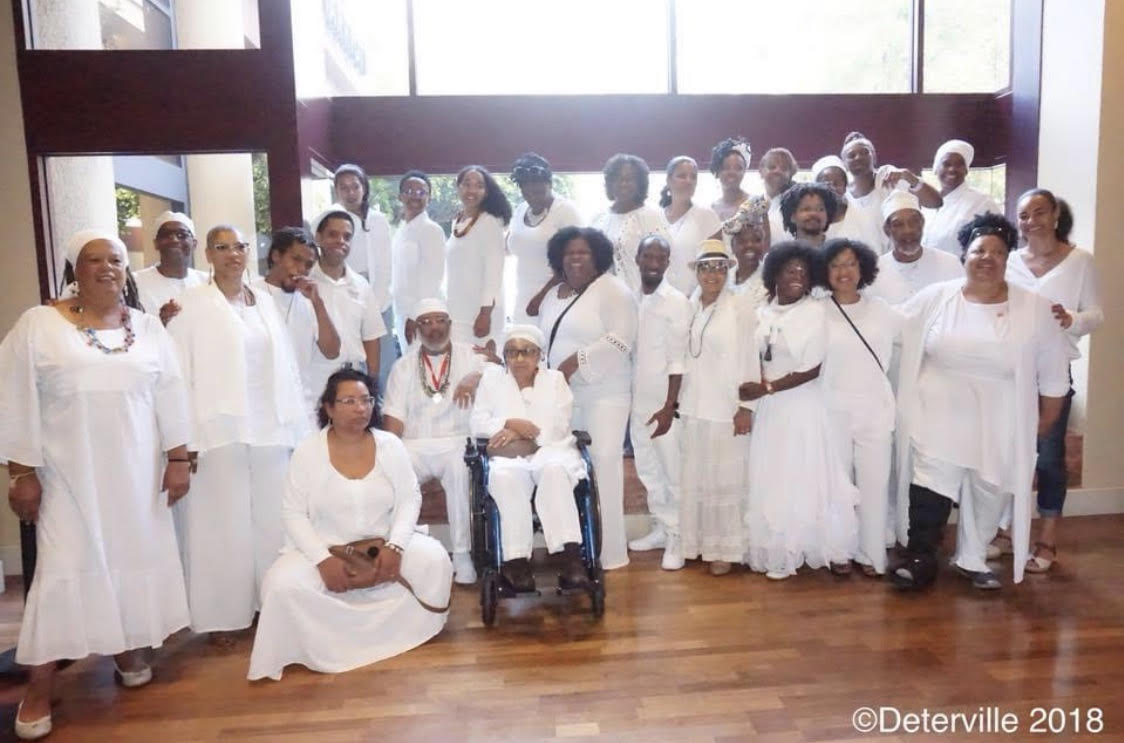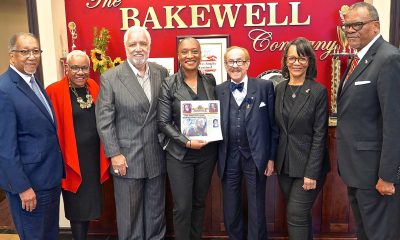Bay Area
The Coronavirus Pandemic: Suggestions for Maintaining Health and Wellness

In just a short period of about 4 months, the coronavirus became a worldwide pandemic affecting almost every country on the globe. The speed with which the disease has spread and the lack of an appropriate vaccine for the virus is frightening. This virus has disrupted normal activities throughout the world.
All attention has been focused on steps to prevent/limit the spread of the virus. The community should follow the guidelines provided by public health officials to protect themselves from becoming infected, such as physical distancing, washing hands, not touching eyes/nose/mouth, etc. A challenging aspect of this virus is that people may have it, be contagious and not know it because they have no symptoms. Given that, these precautions require us to care about not spreading it to others in the community who may be particularly vulnerable. These precautions can limit the possibility of people becoming infected with the virus and halt the spread of the virus.
The coronavirus has created uncertainty and anxiety around the world. As the virus continues to spread, one effect that is apparently going unnoticed is the mental health effects that it brings. The situation is in flux and changes with almost every passing hour. Given the potential spread of the virus over the coming weeks, we can anticipate additional impacts that may produce even greater stress. Governor Newsom followed six Bay Area counties and issued a shelter in place order. Uncertainty surrounds the date this order will be lifted as the virus continues to spread in California and other parts of the country.
As healers, the health and wellbeing of society are our first priorities, and we have to do everything we can to support the community during these difficult times. While we love our family, it can become challenging to spend lots of unexpected time together during this period of rapid change and uncertainty. In our African traditional beliefs, “love” is called “Zola,” in KiKongo. “Zola” activates our self-healing capacity. During this worldwide health crisis, and all the time, we should “Zola up” on our families, each other and everyone we cherish. As community healers, we readily embrace our duty to protect our community, and to that end, we want to offer the following steps to help alleviate the anxiety, sense of helplessness, and stress that the pandemic is creating.
- With the closure of schools, parents have the added responsibility of caring for their children for the whole day. As parents, we have to create additional at-home activities for our children to keep them engaged and learning. This will be an opportunity to create activities that could excite your children’s desire to learn things that interest and inspire them. You can encourage your children by helping them with their schoolwork, reading to them, story-telling, playing games, making chores fun with rewards, etc. These activities can help to enhance the parent/child relationship and reduce the fixation on the stressful nature of the uncertainty and anxiety.
- With everyone in the house all day, we will see behaviors that we were sheltered from while we were at work or in school. It is important to tolerate these different behaviors as long as they are not harmful to others.
- Respect that everyone in the home has a voice, listen gracefully and accept that we do not all think alike. We should not correct another person’s way of thinking if it is not harmful. It is not a good idea to criticize someone at home when you have to spend weeks together.
- We must be kind and considerate to others.
- We must not bully anyone into doing what we want them to do, unless it is to save a life.
- Parents and caretakers have to create respite time for themselves and their children. Exercising, stretching, meditating, dancing, drawing, painting, listening to music, and other arts-and-craft activities can all aid in this situation.
- Pray this will be over soon and life will return to a more optimal situation.
- Please do not get caught up in the hysteria and engage in panic buying. Panic buying and hoarding only serve to make the situation worse. We do have to buy extra food to feed the children who are now at home during the day; but we have to avoid the urge to hoard extra supplies. If you don’t already do so, consider adding foods that strengthen your immune systems like carrots, cabbage, collard greens, eggs, chicken, fish as well as garlic, ginger, turmeric, fruits and blueberries.
- Be sure to wash your clothes regularly. If you go out in the public, wash your outer garments as soon as possible.
- Have a dedicated space to open and read mail. This should not be on the dining table or kitchen counter. Once the mail is read, keep bills and other information in a separate location, and discard envelopes and other junk mail in the recyclable bin. Wash your hands after handling the mail.
- We have to practice good mental health by focusing on the positives that can emerge from the crisis, like enhanced familial relations and reduced concentration on stress involved with the virus. Be sure to tell each other that you love, enjoy, and care for each other.
The community should follow the guidelines provided by public health officials to protect themselves from becoming infected, i.e., physical distancing, washing hands, not touching eyes/nose/mouth, etc.
In addition, the Ancient African principles of MAAT (truth, justice, order, harmony, balance, reciprocity, and righteousness) can assist us in maintaining a healthy mental state. Below is a list of suggested ways to apply these principles as you spend time in close quarters with your loved ones.
Truth – This is the perfect environment for rumors to spread like wildfire. Be especially mindful of this reality and diligently seek to ascertain the truth to avoid allowing reckless panic to drive your decisions.
Justice – The reality is that during times like this, we as a people will collectively be negatively impacted. Do not fall prey to participating in or encouraging behaviors that are unfair or unjust. Even if you have the power and authority. Do not be a bully. Share your power and allow others to practice having a “voice”.
Righteousness – Engage in behaviors that demonstrate acts of kindness and consideration. Do unto others as you would like them to do unto you. Practice this, even when it is not desired. Heaping loving kindness on others keeps you in a positive state. Always do the right thing.
Reciprocity – Make sure everyone has a role in helping the family during this time. Engage in activities that are mutually beneficial to everyone. Do not blast music that only you like, do not hog shared spaces or items, etc. Model volunteering to do things for others and the whole family.
Balance – This principle relates directly to the strategies noted in harmony. Balance being in your “own space” with being “together in the space”. Balance also is important as it relates to EVERYTHING the family consumes during this time, e.g. information on the virus, social media, items purchased, etc.
Harmony – As time in the shelter-in-place passes, getting along with each other can become more challenging. Schedule intentional breaks from each other. Call it mediation time, reading time, or journaling time. Do it everyday and in spaces where you are all still physically present but in your “own space”.
Order – Predictably, the current chaos that some are experiencing can be worse. Remember to stay in control of the things that you can control. Be intentional about maintaining order in your household. Examples include, creating and maintaining a schedule for eating, sleeping, and playing. Treating this like a vacation can get old quickly as the shut-in time increases.
These practices would aid us to feel at peace and sleep well as we wait out this forced shut-in together. As the reality of the virus unfolds we, The Bay Area Chapter of Black Psychologists, have to continue to do the critical work of healing our community as well as all people by assisting in reducing stress and maintaining well-being during this current crisis.
The Bay Area Chapter of the Association of Black Psychologists (ABPsi-Bay Area) is committed to providing the Post Newspaper readership with monthly discussions about critical issues in Black Mental Health. The ABPsi-Bay Area Chapter is a healing resource. We can be contacted at (bayareaabpsi@gmail.com) and readers are welcome to join us at our monthly chapter meetings, every third Saturday at the West Oakland Youth Center from 10a.m. to 12p.m when gatherings are allowed.
Activism
Oakland Post: Week of April 24 – 30, 2024
The printed Weekly Edition of the Oakland Post: Week of April 24 – 30, 2024

To enlarge your view of this issue, use the slider, magnifying glass icon or full page icon in the lower right corner of the browser window. ![]()
Alameda County
DA Pamela Price Stands by Mom Who Lost Son to Gun Violence in Oakland
Last week, The Post published a photo showing Alameda County District Attorney Pamela Price with Carol Jones, whose son, Patrick DeMarco Scott, was gunned down by an unknown assailant in 2018.

Publisher’s note: Last week, The Post published a photo showing Alameda County District Attorney Pamela Price with Carol Jones, whose son, Patrick DeMarco Scott, was gunned down by an unknown assailant in 2018. The photo was too small for readers to see where the women were and what they were doing. Here we show Price and Jones as they complete a walk in memory of Scott. For more information and to contribute, please contact Carol Jones at 510-978-5517 at morefoundation.help@gmail.com. Courtesy photo.
Bay Area
State Controller Malia Cohen Keynote Speaker at S.F. Wealth Conference
California State Controller Malia Cohen delivered the keynote speech to over 50 business women at the Black Wealth Brunch held on March 28 at the War Memorial and Performing Arts Center at 301 Van Ness Ave. in San Francisco. The Enterprising Women Networking SF Chapter of the American Business Women’s Association (ABWA) hosted the Green Room event to launch its platform designed to close the racial wealth gap in Black and Brown communities.

By Carla Thomas
California State Controller Malia Cohen delivered the keynote speech to over 50 business women at the Black Wealth Brunch held on March 28 at the War Memorial and Performing Arts Center at 301 Van Ness Ave. in San Francisco.
The Enterprising Women Networking SF Chapter of the American Business Women’s Association (ABWA) hosted the Green Room event to launch its platform designed to close the racial wealth gap in Black and Brown communities.
“Our goal is to educate Black and Brown families in the masses about financial wellness, wealth building, and how to protect and preserve wealth,” said ABWA San Francisco Chapter President LaRonda Smith.
ABWA’s mission is to bring together businesswomen of diverse occupations and provide opportunities for them to help themselves and others grow personally and professionally through leadership, education, networking support, and national recognition.
“This day is about recognizing influential women, hearing from an accomplished woman as our keynote speaker and allowing women to come together as powerful people,” said ABWA SF Chapter Vice President Velma Landers.
More than 60 attendees dined on the culinary delights of Chef Sharon Lee of The Spot catering, which included a full soul food brunch of skewered shrimp, chicken, blackened salmon, and mac and cheese.
Cohen discussed the many economic disparities women and people of color face. From pay equity to financial literacy, Cohen shared not only statistics, but was excited about a new solution in motion which entailed partnering with Californians for Financial Education.
“I want everyone to reach their full potential,” she said. “Just a few weeks ago in Sacramento, I partnered with an organization, Californians for Financial Education.
“We gathered 990 signatures and submitted it to the [California] Secretary of State to get an initiative on the ballot that guarantees personal finance courses for every public school kid in the state of California.
“Every California student deserves an equal opportunity to learn about filing taxes, interest rates, budgets, and understanding the impact of credit scores. The way we begin to do that is to teach it,” Cohen said.
By equipping students with information, Cohen hopes to close the financial wealth gap, and give everyone an opportunity to reach their full financial potential. “They have to first be equipped with the information and education is the key. Then all we need are opportunities to step into spaces and places of power.”
Cohen went on to share that in her own upbringing, she was not guided on financial principles that could jump start her finances. “Communities of color don’t have the same information and I don’t know about you, but I did not grow up listening to my parents discussing their assets, their investments, and diversifying their portfolio. This is the kind of nomenclature and language we are trying to introduce to our future generations so we can pivot from a life of poverty so we can pivot away and never return to poverty.”
Cohen urged audience members to pass the initiative on the November 2024 ballot.
“When we come together as women, uplift women, and support women, we all win. By networking and learning together, we can continue to build generational wealth,” said Landers. “Passing a powerful initiative will ensure the next generation of California students will be empowered to make more informed financial decisions, decisions that will last them a lifetime.”
-

 Activism4 weeks ago
Activism4 weeks agoOakland Post: Week of March 27 – April 2, 2024
-

 #NNPA BlackPress4 weeks ago
#NNPA BlackPress4 weeks agoCOMMENTARY: D.C. Crime Bill Fails to Address Root Causes of Violence and Incarceration
-

 #NNPA BlackPress4 weeks ago
#NNPA BlackPress4 weeks agoMayor, City Council President React to May 31 Closing of Birmingham-Southern College
-

 #NNPA BlackPress4 weeks ago
#NNPA BlackPress4 weeks agoBeloved Actor and Activist Louis Cameron Gossett Jr. Dies at 87
-

 Community1 week ago
Community1 week agoFinancial Assistance Bill for Descendants of Enslaved Persons to Help Them Purchase, Own, or Maintain a Home
-

 Activism3 weeks ago
Activism3 weeks agoOakland Post: Week of April 3 – 6, 2024
-

 Business1 week ago
Business1 week agoV.P. Kamala Harris: Americans With Criminal Records Will Soon Be Eligible for SBA Loans
-

 Activism2 weeks ago
Activism2 weeks agoOakland Post: Week of April 10 – 16, 2024























































